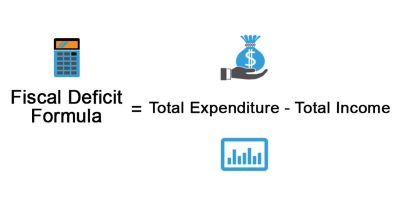Context:
Fiscal consolidation is a critical aspect of economic management that governments undertake to address the imbalance between their expenditures and revenues. In the context of the recent Union Budget presented by Finance Minister Nirmala Sitharaman, the announcement to reduce the fiscal deficit to 5.1% of GDP in 2024-25 has sparked discussions on the ambitious nature of this target. This article delves into the significance of fiscal consolidation, explores the fiscal deficit estimate, examines the government's funding mechanisms, and differentiates between fiscal deficit and national debt. Additionally, it analyzes the potential challenges and implications of the proposed fiscal consolidation measures.
Understanding Fiscal Deficit:
Fiscal deficit is a key indicator of a government's financial health, representing the shortfall when its expenditures surpass its revenues. In the case of the Union Budget, fiscal deficit projections for 2024-25 aim to be reduced to 5.1% of GDP, with a further target of below 4.5% in 2025-26. Analysts were surprised by these projections, as expectations were for a slightly higher deficit, around 5.3% or 5.4% of GDP. The revised estimates also lowered the fiscal deficit projection for 2023-24 to 5.8% of GDP.
It's crucial to differentiate fiscal deficit from a government's national debt. The former is an annual shortfall, while the latter is the cumulative amount a government owes its lenders at a specific point in time. The fiscal deficit is expressed as a percentage of GDP, providing insights into a government's ability to repay its lenders. Larger economies can generally sustain higher fiscal deficits, measured in absolute monetary terms.

Government Funding Mechanisms:
To cover fiscal deficits, governments predominantly resort to borrowing from the bond market, where lenders acquire government-issued bonds. In the case of India, the Centre is anticipated to borrow ₹14.13 lakh crore in 2024-25, lower than the expected ₹15.6 lakh crore. Central banks, such as the Reserve Bank of India (RBI), also play a role in the credit market. While they may not directly purchase government bonds, they may conduct open market operations, indirectly contributing to government borrowing.
Government bonds are often considered risk-free, given the government's ability to create currency as a last resort. However, the challenge lies in the interest rates demanded by lenders. As a government's financial position weakens, demand for its bonds decreases, leading to higher interest rates and increased borrowing costs. The prevailing monetary policy, influenced by central bank lending rates, further affects the cost of government borrowing.
Significance of Fiscal Deficit:
The fiscal deficit holds substantial importance for various reasons. Firstly, there exists a direct correlation between a persistently high fiscal deficit and inflation. Governments with substantial deficits may resort to issuing fresh money, potentially contributing to inflationary pressures. During the pandemic, India's fiscal deficit peaked at 9.17% of GDP but has since improved, with projections indicating a reduction to 5.8%.
Moreover, the fiscal deficit signals the government's fiscal discipline to the market. A lower deficit instills confidence in lenders, potentially improving bond ratings. It also influences the government's ability to manage overall public debt. The International Monetary Fund (IMF) warned in December that India's public debt could surpass 100% of GDP in the medium term, a concern the government contested. A lower fiscal deficit could facilitate the government's access to the international bond market, allowing it to sell bonds overseas and secure cheaper credit.
Challenges and Strategies for Fiscal Consolidation:
Despite the government's ambitious fiscal deficit reduction targets, challenges lie ahead. The Centre plans to lower the fiscal deficit to 5.1% of GDP in 2024-25, emphasizing increased tax collections by 11.5% and reduced expenditure on fertilizer and food subsidies. However, relying solely on tax rate hikes for enhanced collections may pose a risk to economic growth, as taxes can act as a deterrent to economic activity.
Balancing the budget through fiscal consolidation requires a delicate approach, considering potential economic impacts. While the government aims to boost capital expenditure and fund various programs, meeting the fiscal deficit target remains uncertain. Projections may prove inaccurate, and external factors, such as fluctuating global economic conditions, can impact the success of fiscal consolidation measures.
Conclusion:
In conclusion, fiscal consolidation stands as a crucial element of economic management, with implications for inflation, market confidence, and international credit access. The recent Union Budget's ambitious targets for reducing the fiscal deficit underscore the government's commitment to fiscal discipline. The strategies outlined, such as increased tax collections and reduced subsidies, present challenges in achieving a delicate balance between fiscal responsibility and economic growth. As the government navigates these challenges, the effectiveness of fiscal consolidation measures will become apparent, shaping the economic trajectory of the country in the years to come.
|
Probable Questions for UPSC Mains Exam
|
Source – The Hindu







